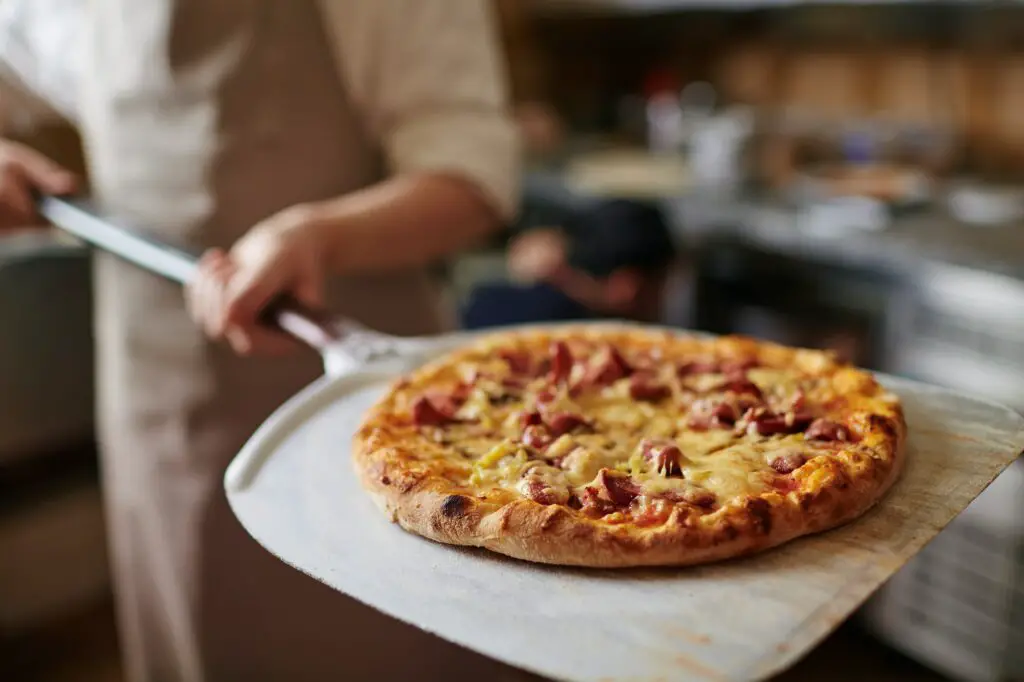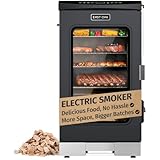Making pizza is an art form. The dough, the sauce, the cheese – it all comes together to create a delicious masterpiece. But what about the toppings? That’s where the wood pellets come in. Different types of wood pellets can give your pizza a unique flavor profile that you won’t find with any other topping. In this blog post, we will discuss the different types of wood pellets available and how they can be used to make the best pizza possible!
Table of Contents
ToggleWhat are wood pellets?
Wood pellets are small pieces of wood that have been cut into very small pieces. They are mainly used in the heating and cooking industries, but they can also be used as a fuel source for cooking and are the main source of fuel for our favorite device—the electric smoker.
Wood pellets are made from different types of wood, and they come in different sizes. They are also available in a variety of colors and can be shaped into any type of pellet.
Types of wood pellets
Wood pellets have been used in the food industry for years. In recent years, there has been a rise in the popularity of wood pellets for use in pizza ovens. There are many types of wood pellets, and each has its own benefits and drawbacks in this article, we will discuss the different types of wood pellets and their respective uses for pizza ovens.

The most common type of wood pellet is actually sawdust. Sawdust pellets are made from small particles of wood that have been ground together into a fine powder. The reason that they are the most common type is that they are inexpensive and easy to produce. They have the advantage of being able to absorb a lot of moisture, which makes them ideal for use in humid environments like a pizza oven. Sawdust pellets also have a low burning temperature, which makes them safe to use in an oven.
The next most common type of wood pellet is shavings. Shavings are made from large chunks of wood that have been cut into small pieces. Shavings are more expensive than sawdust pellets, but they also have several advantages over sawdust pellets. They also have a higher burning temperature, which makes them safer to use in an oven.
The most common type of tree for wood pellets is actually oak. Oak pellets will give your pizza a smoky flavor that is perfect for traditional pies. If you’re looking for something a little bit different, try hickory or mesquite pellets. These pellets will give your pizza a bolder flavor that is perfect for adventurous eaters!
What are the benefits of using wood pellets for pizza?
If you’re looking for an eco-friendly and healthy cooking option for your pizza, wood pellets may be a good choice. They’re made from compressed sawdust and other natural materials, so they don’t contain any harmful chemicals. Plus, they release little heat, so they’re ideal for baking pizza in a moderate oven. Here are some other benefits of using pellets for pizza:
- They’re affordable. Wood pellets are typically cheaper than wood chips or chunks, and they burn more evenly, so you won’t have to worry about over- or under-baking your pizza.
- They’re environmentally friendly. Unlike coal or oil, wood pellets won’t release greenhouse gases when burned.
- They taste great. Pellets are seasoned with herbs and spices, so they have a unique flavor that’s different from traditional wood chips or chunks.
How to use wood pellets for pizza
Wood pellets make an excellent pizza crust because they are a high-heat fuel, and they produce a crisp crust. When used in conjunction with a good oven and pizza stone, wood pellets can produce some of the best pizzas you’ll ever taste. Here are four tips for using wood pellets for smoking pizza:
1. Preheat your oven to 500 degrees Fahrenheit. This will help ensure that your pizzas come out crispy and brown.
2. Choose a wood pellet blend that is specifically designed for pizza crusts. Some blends work better than others, so experiment until you find one that produces the desired results.
3. Start by spreading your pizza dough on a baking sheet lined with parchment paper or Silpat silicone baking mats. Top the dough with your favorite toppings, and then spread the wood pellet blend over the toppings. Bake for 10-12 minutes, or until the crust is crispy and the cheese is melted.
4. Serve hot and enjoy!
What are the disadvantages of using wood pellets for pizza?
There are several potential disadvantages to using wood pellets for pizza. First, pellets can produce inconsistent heat, which could lead to uneven cooking. Second, pellets can be messy and difficult to clean up. Finally, pellets may not be the best option for those with allergies or food intolerances.
Conclusion
When it comes to pizza, most of us know that a crispy crust is key. But what about the toppings? Do you want your pizza extra cheesy? Saucy? Or maybe you just need a little bit of sweetness to counterbalance all those savory flavors. In this article, we will be highlighting some of the best wood pellets for making pizzas and giving you some tips on how to choose them. From there, it’s up to you to experiment and see which ones work best for your specific needs!







